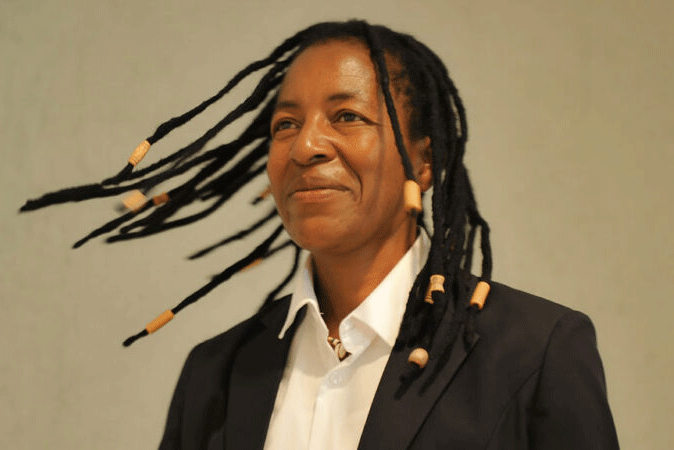
By Sindiso Dube
For Ronnie Zuze, being born intersex in 1977 in Zimbabwe did not just cause problems growing up but also caused marital snags to their (Ronnie uses the pronouns them/they/their) then young parents.
Intersex is a general term used for a variety of situations in which a person is born with reproductive or sexual anatomy that does not fit the boxes of “female” or “male.” Sometimes doctors do surgeries on intersex babies and children to make their bodies fit binary ideas of “male” or “female”.
Doctors always assign intersex babies legal sex (male or female, in most states), but, just like with non-intersex people, that does not mean that is the gender identity they’ll grow up to have. This brings up questions about whether or not it’s tolerable to do medical procedures on children’s bodies when it’s not needed for their health.
People with ambiguous genitalia are sometimes referred to as hermaphrodites. Society has labeled the term as pejorative and the term intersex most preferred in social circles.
Ronnie grew up as a boy until the age of 16 years.
“I was born with ambiguous genitalia, my parents had no idea of what to do and there were a few doctors who had information on that issue. There was confusion in gender and continuous debates and this affected my parents’ marriage. I was raised as a boy and I suffered stigma and being bullied at school. Other kids would want to pull my pants down so that they see what was behind.
“During adolescence, I started developing female features and suddenly at home, they started raising me as a girl. The experience traumatized me psychologically, growing up and to have a bunch of doctors treating me and learning, taking notes from my situation,” they said.
- Chamisa under fire over US$120K donation
- Mavhunga puts DeMbare into Chibuku quarterfinals
- Pension funds bet on Cabora Bassa oilfields
- Councils defy govt fire tender directive
Keep Reading
Zuze added that with growing stigma and name-calling, they had to find solace in alcohol and eventually escape to neighbouring South Africa.
“I started receiving bad comments and stigma from my family members, who started calling me gay and lesbian. They didn’t understand my position that I was intersex as my life was secretive. I then found comfort in alcoholism as a way to numb my pain, eventually, I escaped to South Africa where I started learning more about intersex, after joining movements that advocate for intersex and the LGBTI community.
The internet helped me a lot to know myself better. I stopped being ashamed of myself,” Zuze said.
Zuze went on to establish the Intersex Community of Zimbabwe Trust in 2018.
“As the Intersex community of Zimbabwe, we are not against medical practices, doctors and the Health ministry, however, we are against intersex genital mutilation on babies without consent.
We believe that surgeries should be performed if there is a condition that is life-threatening. This should be consensual and done from an informed position.
Being intersex is not life-threatening but the birth of an intersex child is treated as a medical emergency because there is no right information around the issue. The language used is wrong, that’s why it’s treated as an emergency. There are words such as correctional surgeries, normalising the child, imply that the child is abnormal.
“The effects of these surgeries which are irreversible usually come later in life and the doctors who would have done the process won’t be there anymore and the child suffers the consequences alone,” said Zuze.
Zuze added that their movement is advocating for representation and the acknowledgment of intersex people in Zimbabwe.
Mpilo Central Hospital in Bulawayo recently initiated a register for people with ambiguous genitalia. The hospital’s clinical director Professor Solwayo Ngwenya said parents of kids with ambiguous genitalia should come forward and get ‘treated’.
“We are still ongoing at our clinic of ambiguous genitalia. We are treating patients accordingly and we are doing so to those that are ready and brought forward by their parents. I urge parents to seek help and get advice as early,” Ngwenya said.










